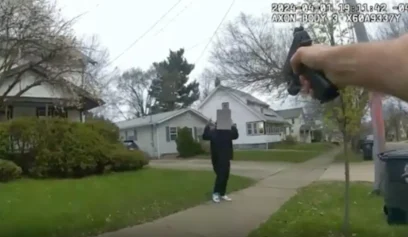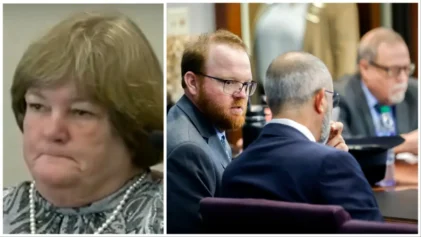Laura Gómez, UCLA law professor and author of the new book “Inventing Latinos: A New Story of American Racism,” is advocating for the United States to provide reparations to Latinos.
In an interview, Gómez referenced the conversation surrounding the possibility of reparations for Black American descendants of slaves, and questioned: “What would that look like for Latinos?”
Gómez focuses primarily on the issue of immigration in advocating for reparations for Latinos.
“Because of the way that American military, government and corporations infiltrated Central America and destroyed the indigenous way of life, and slaughtered so many people. People in Central America should get asylum here, like we had asylum for the Vietnamese, for Cubans. We must allow those folks in,” she said.
She also suggested amnesty as another method of reparations. Gómez believes a pathway to citizenship should exist for those who are nonviolent and have been in the United States for a long time.
“Having amnesty would say, ‘You are part of our community. You’re going to be able to stop living in the shadows,’ that would help all Latinos,” Gómez said. She also noted that only 20 percent of Latinos in the United States are foreign-born.
Gómez acknowledged that reparations for Latinos would look different from reparations Black Americans.
“So it’s a very different way of thinking about reparations than for slavery,” she said. “Again, we’re looking at a different story of anti-Latino racism.”
Gómez believes its essential to view Latinos as a distinct racial group that isn’t necessarily tied to phenotype, since colonialism and the import of African slaves to the Americas resulted inmixing between Africans, Europeans and Indigenous peoples.
“So skin color doesn’t work as a way of identifying,” Gómez said.
She also explained that many Latinos live in segregated neighborhoods, attend segregated schools, and face racism regularly.
“I’m not the first one to say this, but I’m trying to put forward the claim that Latinos are actually thought of by most of us as a racial group, so let’s solve problems based on that idea, rather than getting caught up in this notion of ethnicity, which doesn’t quite fit the group,” Gómez added.
According to Gómez, because there has been a constant influx of Latino immigrants to America, the group has been less likely to assimilate than other racial groups.
Although the conversation surrounding reparations for Black Americans has persisted since the end of slavery, protests across the country following the death of George Floyd brought the discussion to the forefront of public discourse.
Earlier this year, William Darity, a professor of public policy at Duke University who has studied reparations for 30 years, estimated that a program intended to eliminate the Black-white wealth gap would cost between $10 trillion and $12 trillion, or enough for each eligible Black household to receive $800,000.
Over the summer, Asheville, North Carolina, became one of the first U.S. cities to approve reparations in some form, by voting to apologize for its racist past and enact programs to resolve racial disparities.
Last week, the City Council voted to postpone deciding how $1 million worth of funding for community reparations aimed toward the city’s Black populace would be implemented.


